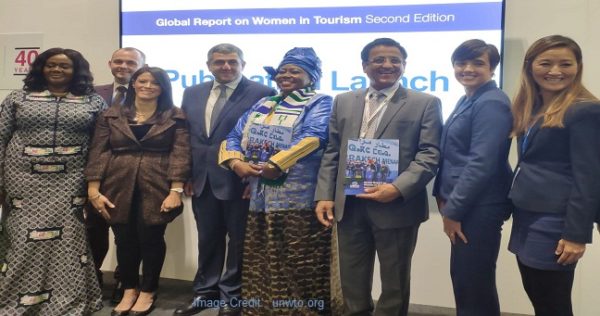The World Tourism Organization (UNWTO), in association with UN Women, The German Society for International Cooperation (GIZ), World Bank Group and Amadeus, has launched the long-awaited second edition of the Global Report on Women in Tourism. The report highlights the progress the global tourism sector has made in advancing gender equality, with key case studies and statistics gathered from across the world.
The major findings show that:
- The majority of the tourism workforce worldwide is female: 54% of people employed in tourism are women compared to 39% in the broader economy
- The wage-gap is smaller in the tourism sector: Women in tourism earn 14.7% less than men compared to 16.8% in the broader economy
- Tourism offers women more opportunities for leadership roles: 23% of tourism Ministers are female compared to 20.7% of Ministers overall
The publication also highlights how more and more women are challenging gender stereotypes in the sector.
In Morocco, for instance, women have been issued tour guide licenses for the first time. An airline in the UK has doubled the number of female pilots they employ and Uganda’s Hotel Owner’s Association is now lead by its first female CEO.
Technology has also been a catalyst for empowerment, providing women with access to more training opportunities and stimulating female entrepreneurship through easier entrée to the tourism market.
In the public sphere, policy-makers are waking up to the significance of gender equality in tourism and putting measures in place to make sure women fairly share the benefits that tourism can bring.
Speaking on these findings UNWTO Secretary-General, Zurab Pololikashvili, said “tourism is leading the charge for female empowerment all over the world. Across the private and public sectors women are harnessing the potential of tourism to become financially independent, challenge stereotypes and start their own businesses.
UNWTO is firmly committed to working towards UN Sustainable Development Goal 5 – the empowerment of women and girls – and ensuring that tourism continues to be at the forefront of gender-equality efforts.”
Source:UNWTO

